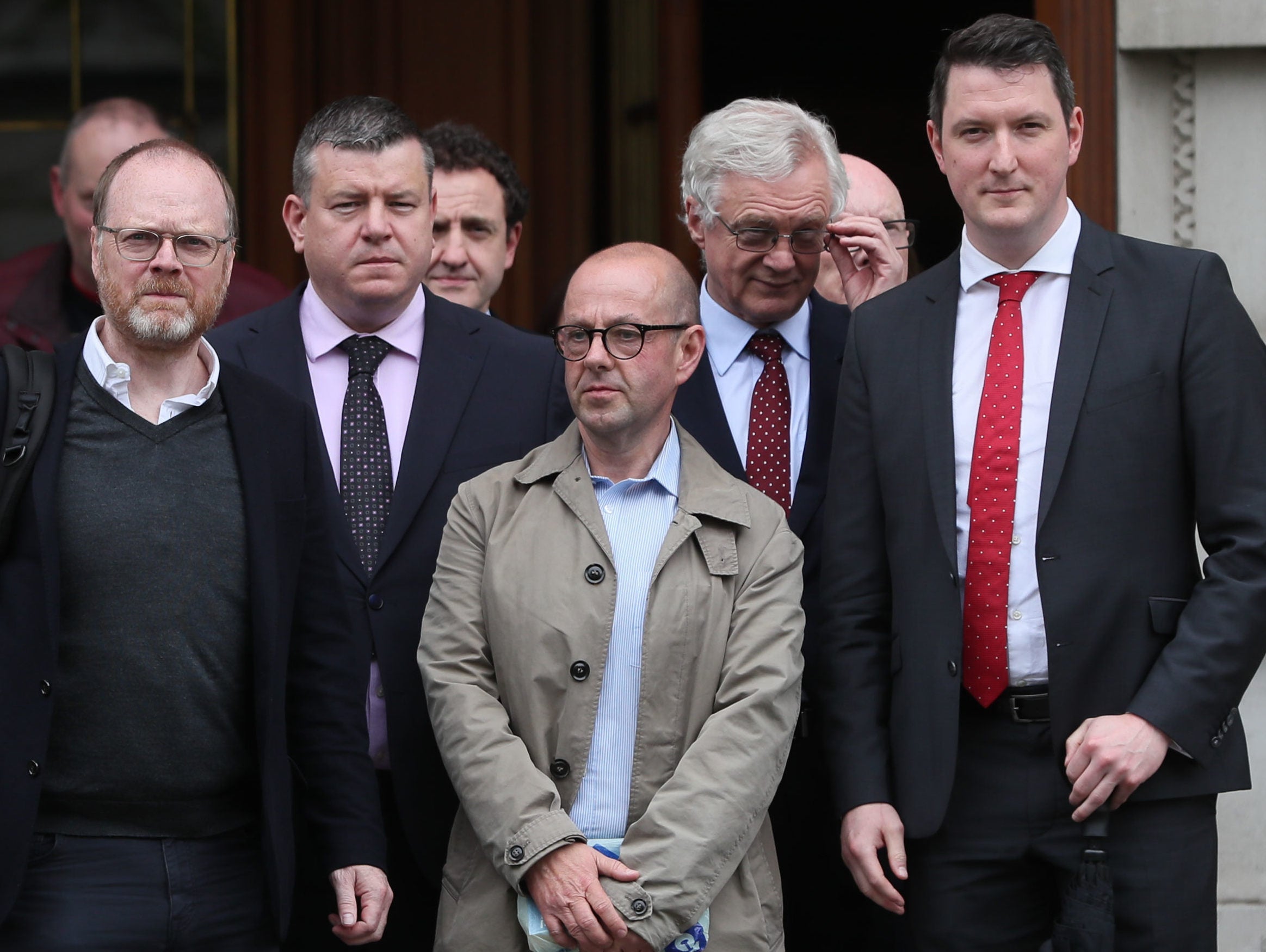
A Conservative MP has urged the Government to review police handling of journalists’ data as two investigative journalists in Northern Ireland fight to have their seized material deleted from police databases.
Trevor Birney (pictured left) and Barry McCaffrey (pictured centre) were arrested and had their homes raided last year over an allegation that they had stolen confidential material used in their 2017 film No Stone Unturned.
The documentary revealed for the first time the names of loyalists suspected of shooting dead six men at a bar in Loughinisland, County Down, while they watched Ireland play in the 1994 World Cup.
The police investigation into McCaffrey and Birney was dropped in June shortly after a judge quashed the search warrants that resulted in the seizure of the pair’s journalistic materials, including computers, hard drives, mobile phones, files and notepads.
But a court date has been set for next month as the journalists pursue the deletion of the data obtained by the Police Service of Northern Ireland through access to their files.
The data has been kept by police despite officers returning the journalists’ confiscated materials.
David Davis MP (pictured, second right), who has been a vocal supporter of Birney and McCaffrey over the past year, told Parliament on Wednesday night that “data from innocent journalists should never be kept”.
“It surely cannot be right for police to store data obtained from a warrant that has been ruled unlawful,” Davis said.
“I therefore urge the Home Office and the Northern Ireland Office to keep a close eye on the development of the Loughinisland case and, when it is adjudicated, review the policies on data acquisition and retention for the PSNI and other police forces throughout the country.”
The material at the centre of the allegation against the journalists belonged to the Police Ombudsman for Northern Ireland. The PSNI asked Durham Police to investigate to avoid any conflict of interest issues.
Davis went on: “This issue is not confined to Northern Ireland, so it will impact investigative journalists and whistleblowers across the whole country.
“Whistleblowers will see such cases, feel intimidated and think that the information they give to journalists is subject to capture and inspection by the police or other agencies of the state.
“Press freedom is at the core of our democratic system, and it must be protected.”
In response, Northern Ireland minister Nick Hurd promised to “continue to keep a close eye on the case and keep it under discussion”.
He added that there is “nothing in recent cases” that calls into question the UK’s stance on protecting the freedom of the media.
“We can all point with pride to the efforts the UK Government are expending to build a global environment in which free and vibrant media can flourish,” he said.
“As part of our leadership on this international agenda, the UK will continue to maintain the highest standards of press freedom while retaining the right to take lawful and proportionate action to prevent and investigate crime in accordance with human rights treaties and the Human Rights Act.”
Picture: Brian Lawless/PA Wire
Email pged@pressgazette.co.uk to point out mistakes, provide story tips or send in a letter for publication on our "Letters Page" blog
